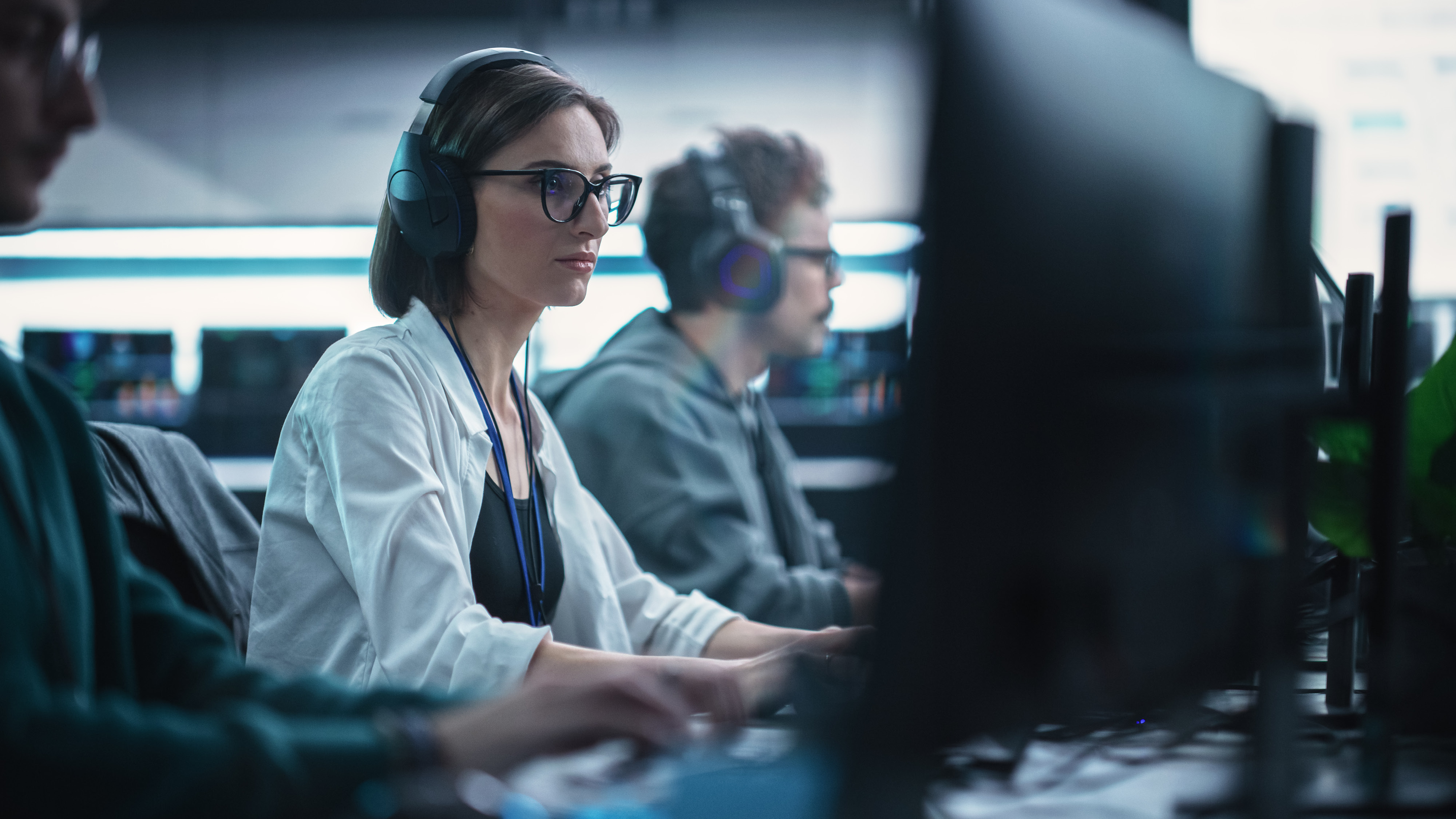As technology continues to advance, the role of artificial intelligence (AI) in various industries has become increasingly prominent. Biotech laboratories, in particular, have seen a significant transformation with the integration of AI. However, while AI undoubtedly has the potential to revolutionise the field, it is crucial to adopt a human-centric approach to ensure its efficacy. In this blog, we will explore the changing world of biotech laboratories, the concept of human-centric AI, its impact on laboratory efficiency, bridging the talent gap, commercial applications, ethical considerations, and the importance of partnering with a reputable recruitment agency.
The Evolution of Biotech Laboratories
Biotech research has undergone a remarkable transformation in recent years. With groundbreaking discoveries and advancements, the field has become increasingly complex and demanding. As a result, traditional methods of research have become inadequate, necessitating the integration of advanced technologies like AI. Biotech laboratories are now relying on AI algorithms and machine learning to process vast amounts of data and uncover insights that were previously inaccessible.
The need for such advanced technologies in biotech laboratories cannot be overstated. AI has the potential to accelerate the pace of research, leading to more efficient processes, quicker results, and ultimately, groundbreaking discoveries. However, it is important to recognize that AI is not a replacement for human expertise but rather a complementary tool that enhances the capabilities of researchers. The success of AI in biotech laboratories relies heavily on the talent and expertise of scientists and researchers who can effectively harness the power of AI algorithms.
Understanding Human-Centric AI
Human-centric AI refers to the integration of AI technologies in a way that prioritises the collaboration between humans and machines. In the context of biotech laboratories, human-centric AI recognises the importance of human expertise and decision-making in conjunction with AI algorithms. It aims to enhance the capabilities of scientists and researchers by providing them with powerful tools and insights that can augment their work.
The benefits of human-centric AI in biotech laboratories are vast. For instance, AI algorithms can process large datasets and identify patterns that may have otherwise been overlooked. This enables scientists to make more informed decisions and uncover new avenues of research. Additionally, AI can assist in automating repetitive tasks, freeing up researchers' time to focus on more complex and creative aspects of their work. This collaborative approach between humans and AI technologies leads to increased efficiency, improved accuracy, and ultimately, greater scientific advancements.
Enhancing Laboratory Efficiency
One of the key advantages of integrating AI in biotech laboratories is the significant improvement in efficiency. AI algorithms can streamline various laboratory processes, reducing the time and effort required to conduct experiments and analyse data. For example, AI can assist in automating data collection and analysis, eliminating the need for manual input and reducing the risk of errors. This not only saves valuable time but also improves the accuracy and reliability of results.
Several case studies highlight the impact of AI on laboratory efficiency. In a study conducted at a leading biotech company, AI algorithms were used to analyse genetic data and identify potential drug targets. This process, which would have taken months using traditional methods, was completed in a matter of days with the assistance of AI. The time saved allowed researchers to focus on further experimentation and accelerated the drug discovery process.
The improvement in laboratory efficiency directly translates to cost savings for biotech companies. By streamlining processes and reducing the time required for experiments, companies can optimise their resources and allocate them to other critical areas. Moreover, quicker results enable companies to bring products to market faster, potentially gaining a competitive edge in the industry.
Bridging the Talent Gap
The field of biotech is experiencing a significant skills shortage, with a growing gap between the demand for talent and the available supply. This shortage poses a challenge for companies striving to stay at the forefront of scientific research and technological advancements. However, human-centric AI offers a solution to bridge this talent gap.
By integrating AI technologies, biotech laboratories can leverage the power of AI algorithms to assist researchers and scientists in their work. AI can help in data analysis, interpretation, and hypothesis generation, augmenting the capabilities of researchers and compensating for the lack of skilled personnel. With the assistance of AI, researchers can tackle complex problems more efficiently and explore a broader range of research possibilities.
Furthermore, the commercial value of having the right talent cannot be underestimated. Biotech companies that can attract and retain skilled scientists and researchers have a competitive advantage in the industry. The integration of human-centric AI not only enhances the capabilities of existing talent but also makes the field more appealing to potential candidates. By showcasing their commitment to innovation and providing researchers with cutting-edge tools, companies can attract top talent and drive scientific advancements.
Commercial Applications
The integration of human-centric AI in biotech laboratories extends beyond scientific research and has significant commercial applications. Biotech companies can leverage AI technologies to drive business growth and improve their bottom line. For instance, AI can assist in predicting market trends, identifying potential customers, and optimising product development. By analysing large datasets, AI algorithms can uncover valuable insights that can inform strategic decisions and drive revenue growth.
Return on investment (ROI) is a crucial factor for biotech companies, and AI can play a pivotal role in maximising ROI. By streamlining processes, reducing costs, and accelerating the development and commercialisation of products, AI technologies can generate significant financial returns. Companies that embrace human-centric AI can gain a competitive edge, as they are better equipped to navigate the complex and rapidly evolving landscape of the biotech industry.
Real-life success stories further illustrate the commercial impact of human-centric AI in biotech laboratories. For example, a biotech company specialising in personalised medicine utilised AI algorithms to analyse patient data and develop tailored treatment plans. This approach not only improved patient outcomes but also enhanced the company's reputation and attracted investors. Such success stories highlight the transformative power of human-centric AI in driving commercial success in the biotech industry.
Ethical Considerations
As with any emerging technology, the integration of AI in biotech laboratories raises ethical concerns that must be addressed. One of the primary concerns is the potential for bias in AI algorithms. Biassed algorithms can lead to skewed results and perpetuate existing inequalities. To mitigate this risk, it is essential to ensure that AI algorithms are developed and trained using diverse and representative datasets.
Transparency and accountability are also critical ethical considerations in the context of AI in biotech. It is crucial for companies to provide clear explanations of how AI technologies are used and the limitations of these technologies. Additionally, mechanisms should be in place to monitor and assess the performance of AI algorithms to ensure their reliability.
Responsible AI adoption is paramount in the biotech industry. Companies must prioritise ethical considerations and work towards developing AI systems that are fair, transparent, and accountable. Reputable recruitment agencies play a vital role in this process by ensuring that the talent they match with biotech companies shares a commitment to responsible AI adoption.
Partnering with a Recruitment Agency
The integration of human-centric AI in biotech laboratories requires the right talent with a unique blend of scientific expertise and technological proficiency. Finding such talent can be challenging, especially in a field with a significant skills shortage. This is where partnering with a specialist recruitment agency in biotech can make all the difference.
Working with a recruitment agency brings several benefits to biotech companies. Access to extensive networks and talent pool of highly skilled professionals in the biotech industry. Understanding of the unique requirements of biotech laboratories and the ability to match companies with candidates who possess the necessary expertise in AI and biotech.
The integration of human-centric AI in biotech laboratories marks a significant milestone in scientific research and technological advancements. By leveraging AI technologies, biotech companies can enhance laboratory efficiency, bridge the talent gap, drive commercial success, and ultimately, accelerate scientific discoveries. However, it is crucial to adopt a responsible and ethical approach to AI adoption, ensuring that the benefits of AI are maximised while minimising potential risks. Partnering with a reputable recruitment agency specialising in biotech can help companies find the right talent and navigate the complex landscape of AI in biotech. Embrace the transformative power of human-centric AI and unlock the full potential of your biotech laboratory.
Call to Action
Are you ready to embrace human-centric AI in your biotech laboratory? Contact Panda today to find the right talent and drive scientific advancements in your organisation. Visit our website or call us at [insert contact information] to get started on your journey towards integrating AI in your laboratory.




